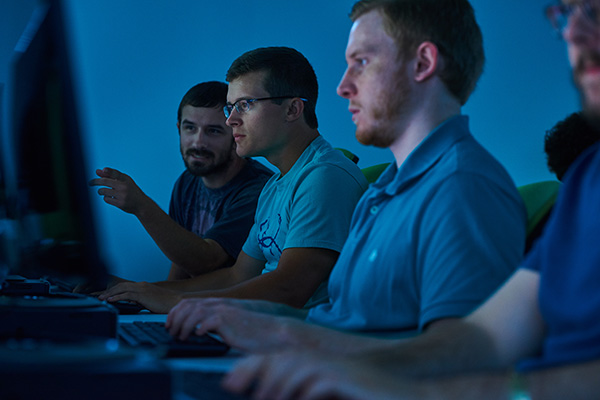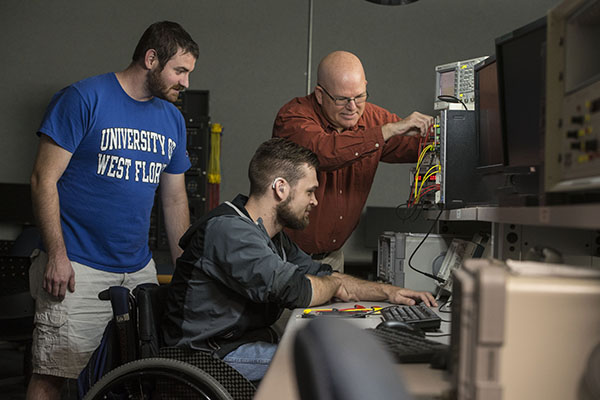Program Details
Credit Hours: 30
Course Length: 16 weeks
Estimated Program Length: 24 Months
Next Application Deadline: See Application Deadlines quicklink
Program duration may depend on course load and availability. Consult with your advisor.
Increase your earning potential and open the door for specialized career opportunities with a Master of Science in Engineering from UWF.
Why Study Engineering at UWF?
The Master of Science in Engineering degree is a joint venture between the Dr. Muhammad Harunur Rashid Department of Electrical and Computer Engineering and the Department of Mechanical Engineering.
We offer one-on-one interaction with highly trained faculty and a flexible course schedule. You can choose to attend live lectures at the Pensacola campus, UWF Emerald Coast in Fort Walton Beach, watch a live feed of the lecture anywhere in the world or watch recorded lectures at your convenience.
What You Will Learn
You will choose one of three high-demand areas of specialization—power, robotics or advanced materials—and mix in a wide variety of elective courses to develop a program that best suits your needs.
Regardless of which specialization you choose, you will enroll in Principles of Engineering Analysis, which covers topics in advanced engineering analysis, including linear algebra, partial differential equations, Fourier series, complex variables and vector calculus with numerical techniques.
You will take three courses in your area of specialization, concluding with a thesis or an engineering project.
A limited number of graduate research and teaching assistantships exist for highly qualified students.
Whether you are a professional wanting an M.S. degree for advancement or are preparing to move into a Ph.D. program (our robotics concentration would be a great way to prepare for the Ph.D. in Intelligent Systems and Robotics at UWF), UWF has a lot to offer.
Our highly trained faculty, state of the art labs and research, and high tech classrooms are just what you need.
UWF offers classes through various delivery methods, including face-to-face, hybrid, and online. Though UWF makes every effort to provide on-campus classes in face-to-face programs, there is a possibility that some classes will have limited availability and may be offered online only. For more information, please review the modes of delivery and instructional methods.



.jpg)



